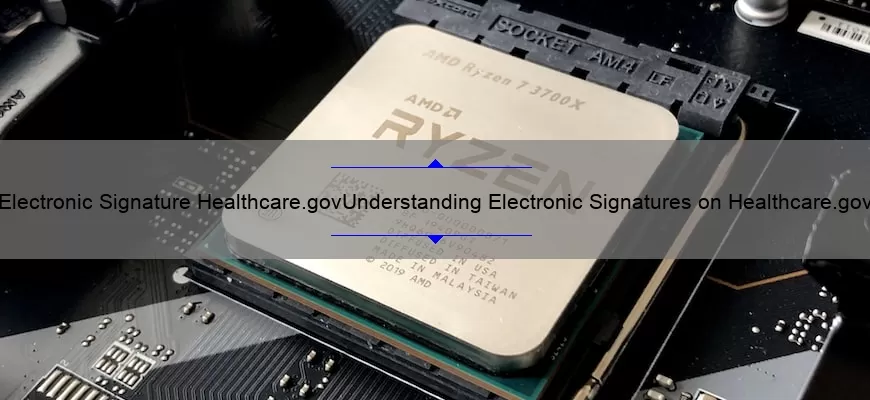1.What is an Electronic Signature on Healthcare.gov?
An electronic signature, or e-signature, is an electronic record that can be used to sign documents or agreements online. The purpose of this type of signature is to provide a secure way to sign documents without the need to physically sign them. On Healthcare.gov, an electronic signature is used to confirm an individual’s identity and authorize the release of their personal information. This information is then used to determine eligibility for health care coverage. By using an electronic signature, individuals can securely confirm their identity and authorizing the release of their personal information to determine eligibility for health care coverage without having to physically sign documents. Electronic signatures also ensure that all documents are legally binding and secure.
2.How Does an Electronic Signature Work on Healthcare.gov?
An electronic signature is a signature that is used to electronically sign documents and contracts. Electronic signatures are becoming increasingly popular in the healthcare industry as they offer a secure, efficient, and legally binding way to securely exchange information.
On Healthcare.gov, an electronic signature is used to sign up for healthcare coverage. The process is simple and straightforward. After entering your personal information, you will be prompted to enter an electronic signature. Electronic signatures are verified by a third-party verification system, ensuring that the signature is authentic and legally binding.
Once your electronic signature is verified, your healthcare coverage will be ready to be activated. An electronic signature is an easy and secure way to quickly sign up for healthcare coverage without having to physically sign the paperwork. The electronic signature is legally binding, so you can be sure that all of the information you
3.What Are the Benefits of Using an Electronic Signature on Healthcare.gov?
Using an electronic signature on Healthcare.gov offers a variety of benefits to users. Electronic signatures are a secure, convenient way to sign documents in a healthcare setting. By using an electronic signature, you can save time, reduce paperwork, and ensure accuracy of the document being signed.
Firstly, electronic signatures are much faster than traditional paper signatures. By using an electronic signature, you can quickly and easily access and sign documents without having to wait for a physical signature. This feature is especially useful in a healthcare setting, where time is of the essence.
Secondly, electronic signatures can help reduce paperwork. By using an electronic signature, you can avoid the hassle of printing out documents and physically signing them. This can save time and money, as well as reduce the amount of paperwork that needs to be processed.
Thirdly, electronic
4.What Are the Risks of Using an Electronic Signature on Healthcare.gov?
Using an electronic signature when signing up for health insurance coverage through Healthcare.gov carries with it certain risks. The most notable risk is the potential for identity theft. By signing an electronic document, you are agreeing to a contract that binds you to the terms and conditions of the healthcare plan. Unfortunately, the internet is not always a safe place, and if your signature is intercepted by a malicious third-party, they could use your signature to commit fraud or even steal your identity.
Another risk associated with using an electronic signature on Healthcare.gov is the potential for fraud. By signing electronically, you are agreeing to the terms of the health plan and assuming responsibility for any costs or fees associated with the plan. A fraudulent third-party could intercept your signature and use it to commit fraud, such as providing false information or attempting to obtain services






